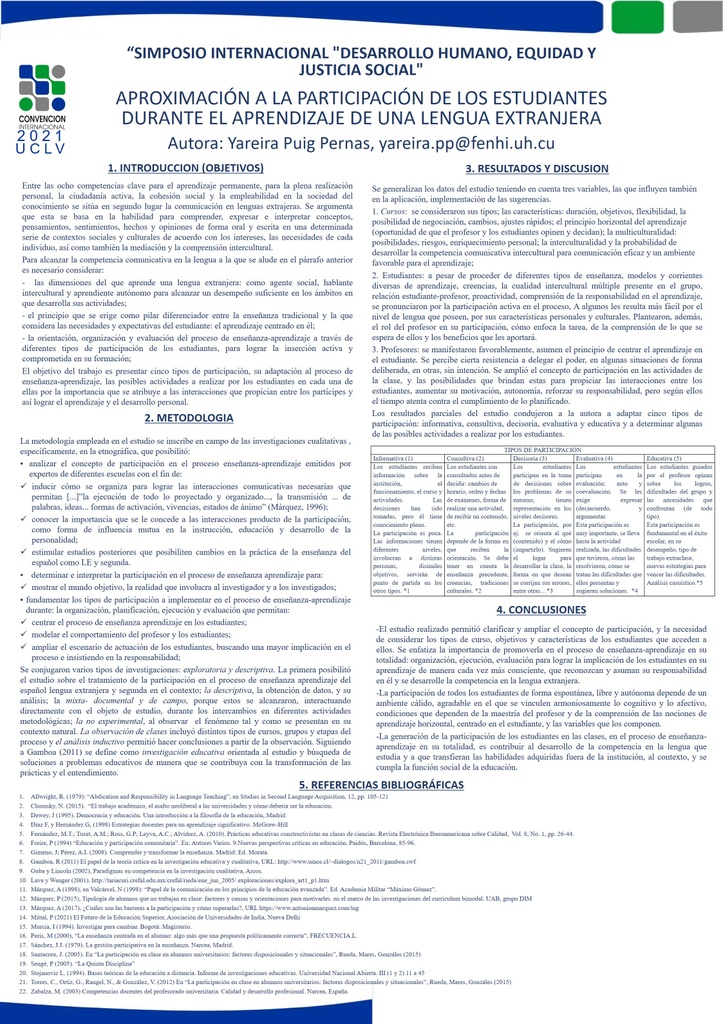Executive Secretary

Simposio Internacional “Desarrollo Humano, Equidad y Justicia Social"

Entre las ocho competencias clave para el aprendizaje permanente, para la plena realización personal, la ciudadanía activa, la cohesión social y la empleabilidad en la sociedad del conocimiento se cita, en segundo lugar, la comunicación en lenguas extrajeras. En el referido documento se argumenta que esta se basa en la habilidad para comprender, expresar e interpretar conceptos, pensamientos, sentimientos, hechos y opiniones de forma oral y escrita en una determinada serie de contextos sociales y culturales de acuerdo con los intereses, las necesidades de cada individuo, así como también la mediación y la comprensión intercultural. Lo antes expuesto remite a considerar las dimensiones del que aprende una lengua extranjera: como agente social, hablante intercultural y aprendiente autónomo para alcanzar un desempeño suficiente en los ámbitos en que desarrolla sus actividades. El logro de la competencia en la lengua exige reflexionar sobre la orientación, organización del proceso de enseñanza-aprendizaje, la necesidad de facilitar diferentes tipos de participación de los estudiantes, que se explotan poco o nada, para lograr la inserción activa y comprometida en su formación. El objetivo del trabajo es presentar cinco tipos de participación: informativa, consultiva, decisoria, evaluativa y educativa, su adaptación al proceso de enseñanza-aprendizaje, las posibles actividades a realizar por los estudiantes en cada una de ellas por la importancia que se atribuye a las interacciones que propician entre los partícipes y así lograr el aprendizaje y el desarrollo personal.
Among the eight key competencies for lifelong learning, for full personal fulfillment, active citizenship, social cohesion and employability in the knowledge society3, communication in foreign languages is mentioned in second place. In the aforementioned document it is argued that this is based on the ability to understand, express and interpret concepts, thoughts, feelings, facts and opinions orally and in writing in a certain series of social and cultural contexts according to interests, needs of each individual, as well as mediation and intercultural understanding. The foregoing refers to considering the dimensions of those who learn a foreign language: as a social agent, intercultural speaker and autonomous learner4 to achieve sufficient performance in the areas in which they carry out their activities. The achievement of proficiency in the language requires reflection on the orientation, organization of the teaching-learning process, the need to facilitate different types of student participation, which are little or no use, to achieve active and committed insertion in their training. The objective of the work is to present five types of participation: informative, consultative, decision-making, evaluative and educational, their adaptation to the teaching-learning process, the possible activities to be carried out by students in each of them due to the importance attributed to the interactions that promote between the participants and thus achieve learning and personal development.
Sobre el ponente

Dr. Yareira Puig Pernas
